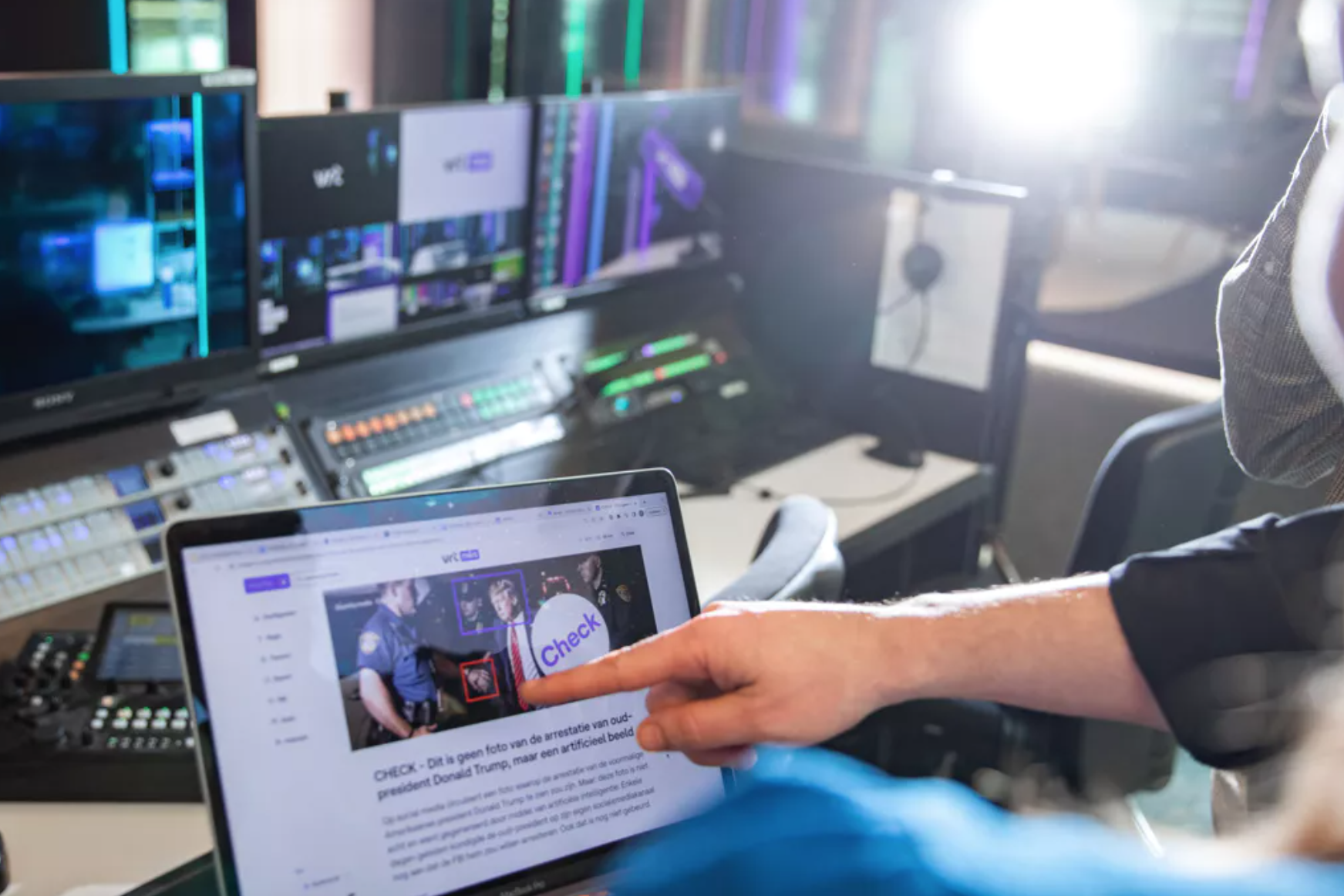MEMBER PRESS RELEASE
Local media such as VRT are less visible and findable. “Policymakers must take urgent action”
5th June 2024
You can quickly find Netflix or Disney+ on your smart TV or in an app store. It has been a long time looking for a local public broadcaster like VRT. You’ve undoubtedly figured that out yourself. However, there is a way to make local players more visible on international platforms and apps. It is called due prominence, literally: appropriate conspicuousness.

This press release was originally published by VRT and is republished with permission.
To listen to or watch the offer of a public broadcaster such as VRT, you must be able to find it. That sounds logical, but it is not so obvious. Media consumers are increasingly using digital platforms and apps. Local players such as VRT, but also Play or VTM are often difficult to find. International providers, on the other hand, are prominently visible, often because they pay for them. Some even have a separate button on your remote control. For example, the public has less access to media services of general interest such as those of public broadcasting.
Read more: PSM Unpacked | Prominence
Due prominence means that these media services of general interest are given the appropriate visibility and findability. Because platforms and apps will not take care of this of their own accord, government rules may be necessary. The European Union also allows this, but asks the Member States to develop these regulations themselves. They also have to answer some important questions themselves. Do they only include the offer of the public broadcasters, or also that of the commercial local players? Is it about the linear offering and the postponed media services? Do the rules only apply to TV, or also to radio and even the press?
Due prominence is necessary
It is clear that there are still challenges in introducing rules for due prominence . But it does not alter the fact that these regulations are necessary for local players. “I understand why public and other broadcasters are fighting for this,” said Michèle Ledger (CERRE, Université de Namur, Cullen International). She conducts research into due prominence rules in various countries. “Certainly for public broadcasters, there are good reasons to be visible and findable. They are funded by the government, which wants to invest resources in content that is visible. Findability and visibility can increase viewing figures.”
“This reality is detrimental to the visibility and findability of local media. And that is problematic from both a social and economic point of view.” – Karen Donders, VRT Director of Public Talent, Engagement and Organisation
In Flanders, there is a growing awareness that rules for due prominence are necessary to protect the local media landscape. An independent investigation is currently underway into the problem and the way in which the Flemish government can take regulatory action. And many political parties have now indicated that they want to work on due prominence. Perhaps inspiration can be drawn from the pioneering countries that are already furthest along in this regard. There, rules are being finalised for due prominence on smart TV, app stores and voice-controlled devices. For Flanders, this could mean that VRT MAX is more prominently visible on smart TVs or in the app stores.
Listen toour podcast
Uncovering and exploring the biggest
issues facing public media
Regulations coming
“Three EU member states are very advanced with their rules on due prominence: Germany, France and Italy,” says Michèle Ledger. “These three countries determined which services should be clearly visible on which platforms and under what conditions. The Member States can determine these matters themselves. Other countries are also working on it. A major challenge is the compatibility of national rules on due prominence with the EU internal market. Within that market, service providers are free to offer services, as long as they comply with the national law of the Member State in which they are established. These online platforms are often located in Ireland, and therefore not in Belgium. National obligations in terms of due prominence could therefore be regarded as incompatible with internal market policy.”
Michèle Ledger sees two possible ways to deal with this. First, the national legislator assumes that the rules for due prominence will pass the legal check at European level. Or the European directive for audiovisual media must be amended. Then the principle that a platform must only comply with the legislation of the country of establishment disappears. The European Parliament has already adopted a resolution to this effect. She wants to amend the EU directive so that member states are obliged to introduce rules on due prominence . “In the meantime, national rules must be carefully justified, precisely because you affect the freedom of doing business of these platforms,” Michèle Ledger adds. She also points out that in the future, attention may not only be focused on media services, but also on their individual programs. “On many platforms, the offering is divided into categories of programs, not per provider.”
17 clicks
“In some popular media consumption environments, Flemish people have to click 17 times to get to VRT MAX or Streamz,” says Karen Donders, director of Public Engagement, Talent & Organization at VRT. “Remote controls are often equipped with a so-called fast button to the YouTube or Netflix offering. In other words, international content is immediately findable by the media user. Our local content is not. That is not a theoretical reflection. It is the reality today and tomorrow. This reality is detrimental to the visibility and findability of local media. And that is problematic from both a social and economic point of view. That is why the public broadcaster and private broadcasters are asking policymakers to take urgent action.”
Related Posts
3rd April 2024
VRT NWS is launching a fact-check marathon in the run-up to elections
With the approaching parliamentary and…




